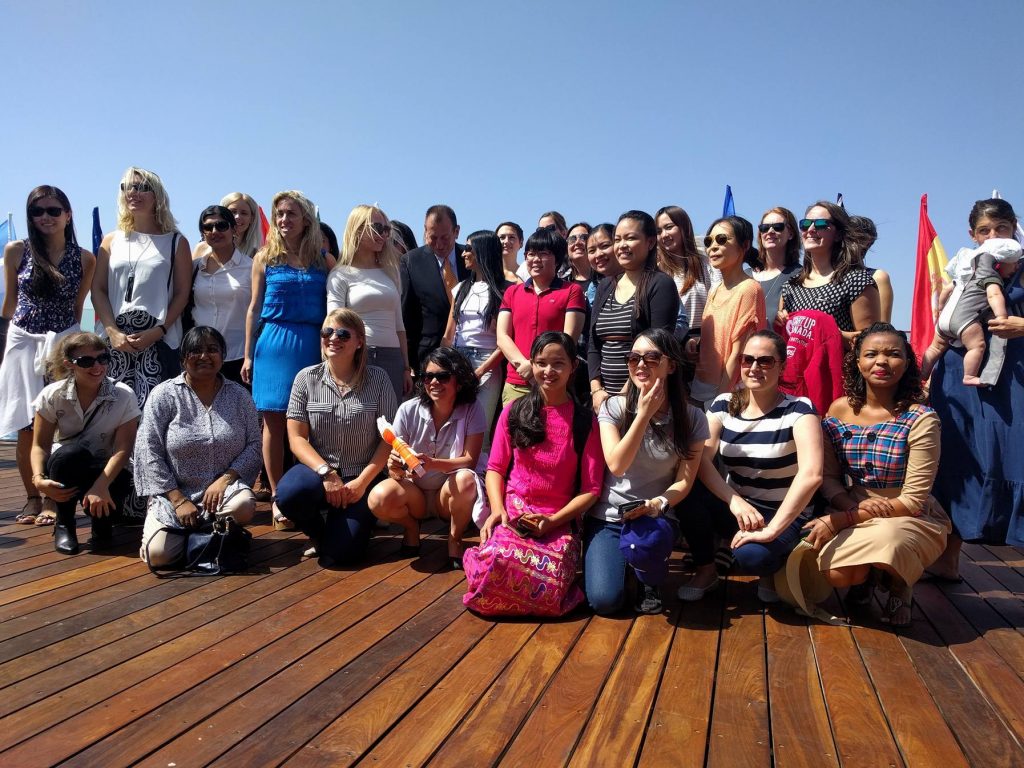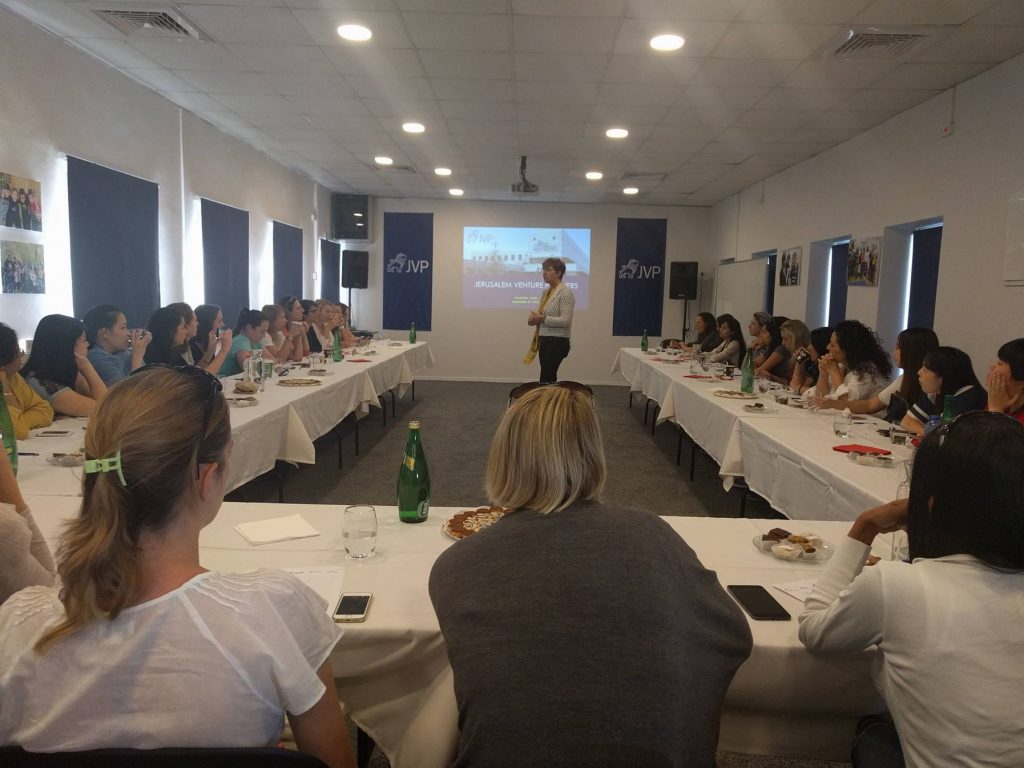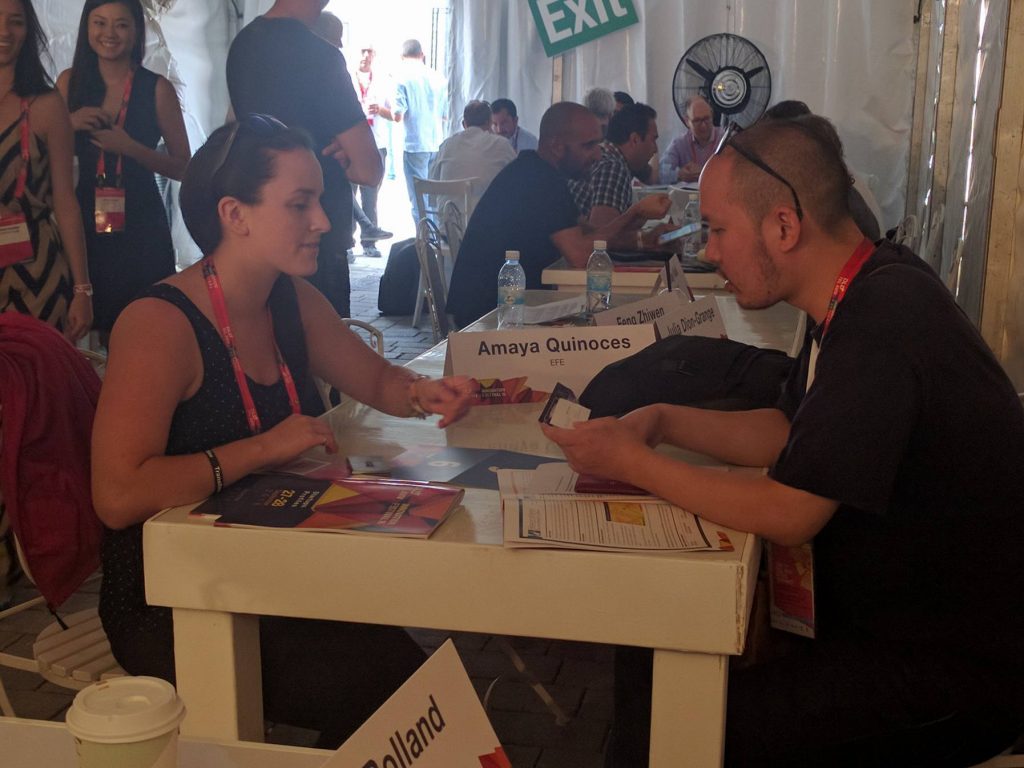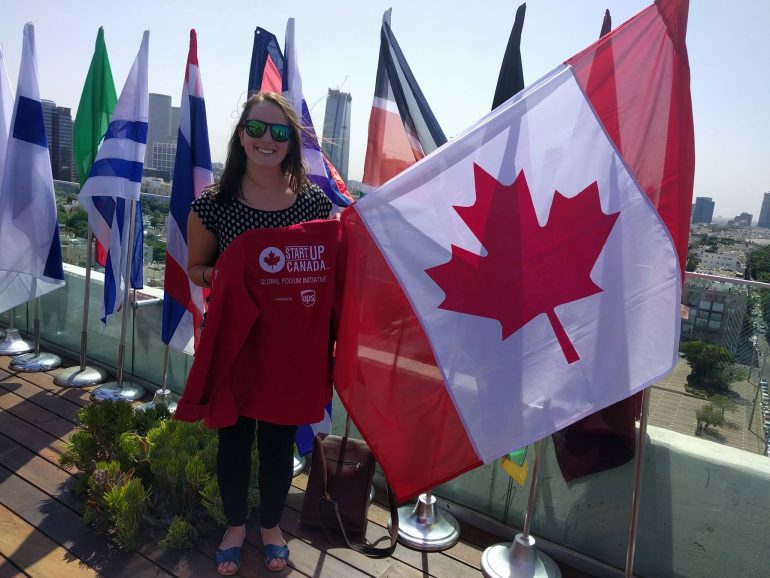With a deep network of prominent companies and a healthy venture capital environment, Silicon Valley is often hailed as the centre of the startup universe in North America.
But other startup ecosystems around the world have embraced entrepreneurship for many years — in Tel Aviv’s case, Israelis credit the fostering of the city’s entrepreneurial spirit to as far back as 1910 in Degania, when a group of people called Kibbutzen arrived to turn the harsh desert climate into a strong agricultural community. Israelis regard this as the first agricultural “incubator” as farmers were forced to collaborate on innovative solutions and experiment with tools. But the country’s lack of natural resources has led to the embracing of high-tech industries, with the 420,000-strong city of Tel Aviv, home to 1,450 early stage startups, nicknamed Startup Nation.

It’s in this setting that Andrea Palmer, founder of Awake Labs, spent five days as the Canadian winner of Start Tel Aviv, a global competition held by the Israeli Ministry of Foreign Affairs and Tel Aviv Global. Startups from 31 countries applied for the opportunity to participate in workshops, networking events, and the chance to learn how Israel’s strong startup culture could affect their business. Palmer was chosen through a competition run by Startup Canada, the Embassy of Israel in Canada, and UPS.
“In Canada, we think about our immediate location as our first market. But it’s not necessarily the best first market for our technology.” – Andrea Palmer, founder of Awake Labs
“With the rise of ecommerce, Canadian businesses are now competing in a global market, and we want to educate startups to include global expansion in their short and long-term business plans,” said Paul Gaspar, director of Small Business at UPS Canada. UPS currently sponsors Startup Canada’s Global Podium Initiative, which works to bring Canadian entrepreneurs and startups onto the global stage. “As we support businesses across our vast network in 220 countries and territories, we want to work with entrepreneurs in order to understand their needs and create a supply chain that sets them up for success.”
This year, the competition chose to focus on women entrepreneurs around the world. Interestingly, the organizers of Start Tel Aviv admitted it was difficult to get embassies around the world on board with the idea at first, as they said they “just don’t have women entrepreneurs.”
“It’s hard because you have to stand out somehow and the fact that you’re a woman is something you can’t change, so it’s hard to be selected because of this thing that you can’t change and not just because of your accomplishments,” said Palmer. “But at the same time, people think that we don’t exist because we’re not putting our names forward for things. I don’t know if I would’ve sought out this opportunity if it hadn’t been for female founders. It would have just passed my desk.”

During the five days, Palmer had the chance to meet with Tel Aviv mayor Ron Huldai, pitch to Tel Aviv-based venture capitalists, and attend events highlighting the startup scene of both Israel and international ecosystems and what they can learn from each other. The event also ran in conjunction with the DLD Innovation Festival, which invites startups in design, digital media, and tech — and major decision-makers like government officials — to celebrate innovation. Outside of the bubble of North America, Palmer learned how places like Stockholm and Dusseldorf, which are relatively small compared even to Toronto, are making entrepreneurship a priority.
“It’s the government’s role to take the lion’s share of risk.” – Avi Hasson, chief scientist of Israel Innovation Authority
“Coming from Vancouver, we have this idea that we have a really good startup ecosystem. And then when I was in Toronto for The Next 36, it was like another level of how people working quickly and working on startups. Even though Vancouver is a good startup ecosystem in some respects, for software companies, Toronto has this other layer,” said Palmer. “And then coming here, I was just interested in the mindset of people and how they approach risk and innovation and their startups.”
Tel Aviv boasts statistics like having one startup for every 290 residents — the highest amount of startups per capita in the world. Israelis credit a few key segments of their culture and infrastructure for their eagerness to pursue entrepreneurship. Israel is a small place where everyone has some connection to each other with its nationalistic culture, and Israelis take a lot of pride in their own ‘chutzpah’ — an assertiveness and stubbornness in refusing to take no for an answer. The country’s compulsory military service for its citizens allows people to work closely as a team to solve difficult problems.

One of the most well-known aspects of Israel’s startup ecosystem is the Israel Innovation Authority, formerly known as the Office of the Chief Scientist. What’s interesting about Israel’s approach, though, is that the Innovation Authority expects most of its companies to fail, and in chief scientist’s Avi Hasson’s words, they believe that taxpayer money should be going to the riskiest places. “It’s the government’s role to take the lion’s share of risk,” said Hasson. “Every dollar we give to the innovation authority returns itself to the economy five or six times. I benefit from failing companies, since for every failing company, four new startups emerge – thanks to talent. So it maybe not benefit the one company, but it benefits the ecosystem.”
It’s a stark contrast to Canada, which is currently in the midst of drafting its Innovation Agenda while fielding criticisms of its Startup Visa program. Palmer, who met with Dr. Ami Friedman from the Israel Innovation Authority, felt that this was an attitude that Canada could learn from. “They invest in these startups even though they know they’re going to fail because it gives them that much more experience, and the second time they’ll be much smarter about it. And we don’t have that in Canada at all,” said Palmer.
Palmer added that the experience being in Tel Aviv has pushed her to think more about being assertive when it comes to global growth. “Israel is so small that it has that collaboration and they have to start thinking internationally automatically. But in Canada, and even some of the other people in the Start Tel Aviv program, they think about their immediate location as their first market. But it’s not necessarily the best first market for their technology.”


